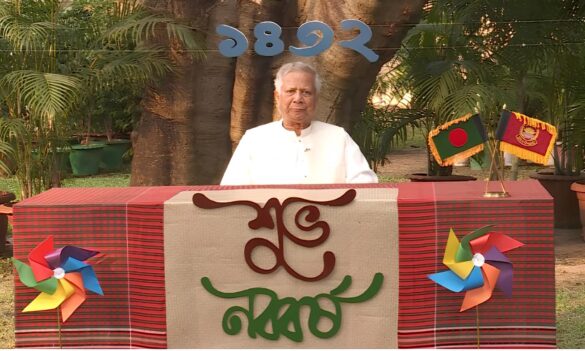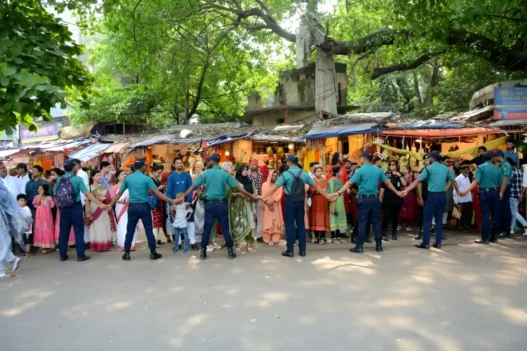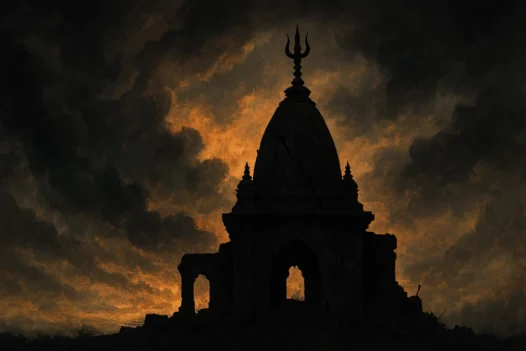By Sanjoy Kumar Barua
The recent removal of the term “indigenous” from ninth- and tenth-grade textbooks, following protests by some fanatics students in Bangladesh, reveals a stark reluctance to confront entrenched prejudices.
While the National Curriculum and Textbook Board (NCTB) swiftly acquiesced to the demands of the extremist student faction, this action underscores a profound crisis—one that jeopardizes the very principles of inclusion, national identity, and historical accountability.
The removal of the term “indigenous” from educational resources transcends mere semantics; it represents a deliberate erasure of the dignity and legitimacy of marginalized communities, particularly those in the Chittagong Hill Tracts (CHT). This decision also casts a stark light on the state’s reluctance—or inability—to engage with the realities of its diverse and pluralistic society.
Bangladesh’s history stands as a powerful testament to the perils of suppressing identity.
Before 1971, the Pakistani regime methodically stifled Bengali self-determination, framing it as a subversive force threatening national unity.
This myopic denial of Bengali identity and agency ignited the fires of resistance, culminating in a nine-month-long liberation war that forged Bangladesh as an independent state.
Yet, despite being born of this very struggle, Bangladesh risks repeating the errors of its oppressors. By refusing to recognize indigenous communities’ self-identification, the state risks alienating its own citizens, perpetuating a cycle of marginalization that history has shown often leads to defiance and discord.
Among the political establishment, the term “indigenous” is treated as a symbol of separatism—a perception rooted in fear rather than fact. There is no empirical evidence to substantiate claims that recognizing indigenous identity fosters sedition. Instead, the true threat lies in the state’s refusal to acknowledge the lived realities of these communities. Marginalization breeds resentment, and resentment inevitably finds expression in resistance.
In the CHT, indigenous communities have faced decades of systemic disenfranchisement, cultural erasure, and political subjugation.
Refusing to recognize their distinct identity exacerbates their exclusion, deepening the chasm between these communities and the state.
History demonstrates that resistance arises not from recognition, but from its absence—when justice, dignity, and inclusion are denied, people are compelled to assert their humanity against the machinery of erasure.
The reluctance to embrace indigenous identity reflects a colonial-era mindset that views diversity as a liability.
This antiquated notion of nationalism prioritizes artificial homogeneity over the natural pluralism of a modern state.
Such a worldview is not only outdated but increasingly untenable in an interconnected, globalized world where inclusivity is recognized as a source of strength.
Modern nation-states thrive by celebrating their diversity.
International frameworks like the United Nations Declaration on the Rights of Indigenous Peoples (UNDRIP) affirm that the recognition of indigenous identity is not a concession, but a moral and political imperative.
Far from threatening national unity, the integration of indigenous communities into the political, cultural, and social fabric strengthens the state, fostering equity and cohesion.
Opponents of indigenous recognition in Bangladesh often argue that such acknowledgment threatens national unity.
Yet this rhetoric is steeped in hypocrisy. The same voices that denounce indigenous identity as divisive overlook the significant contributions these communities make to Bangladesh’s cultural fabric.
By denying their identity, these detractors undermine the very principles of justice and solidarity they purport to uphold.
This resistance also contradicts the foundational ethos of Bangladesh itself.
The nation’s birth was predicated on the principle of self-determination—a right for which its people shed blood and endured immeasurable sacrifice.
To deny this same right to indigenous communities is a profound betrayal of the ideals that underpin the country’s sovereignty.
The debate surrounding textbook content goes beyond a mere bureaucratic issue; it is a crucial test of Bangladesh’s integrity as a modern, inclusive state. Recognizing indigenous identity is not a sign of weakness or division; it is a reaffirmation of the state’s commitment to justice, equality, and unity.
Denying identity is not simply an act of marginalization—it is a profound erasure. It strips individuals and communities of their humanity, their history, and their rightful place within the national story.
This exclusion is contrary to the principles upon which Bangladesh was founded and threatens to undermine the very core of its national identity.
The government must transcend the fear and ignorance that have long shaped its approach to indigenous communities.
It must adopt a vision of nationalism that embraces pluralism, recognizing that unity is not the absence of diversity, but its celebration.
A nation that honors all its citizens, irrespective of ethnicity or heritage, is a nation strengthened by justice and inclusion.
Only by embracing its rich tapestry of identities can Bangladesh fulfill the promise of its liberation and chart a course toward a more equitable future.
Recognizing indigenous identity does not weaken the state but fortifies it. It is a reflection of the nation’s resilience, integrity, and commitment to its founding ideals.
Source: The Chittagong Hill Tracts







